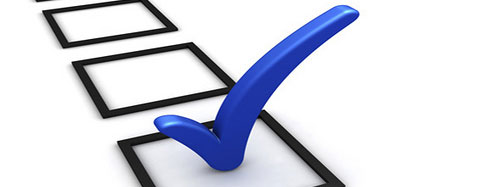 A scandal is continuing to percolate through Canada. It looks more and more like the Conservative Party of Canada have tried to rig the most recent federal election through dirty tricks.
A scandal is continuing to percolate through Canada. It looks more and more like the Conservative Party of Canada have tried to rig the most recent federal election through dirty tricks.
In the last election, in May of 2011, the Conservative Party of Canada won a majority of the seats in the House of Commons, after two consecutive elections of winning a plurality only. It is looking more and more likely that a lot of their success may have been due to rigging the vote.
The main kind of rigging that went on seems to have happened by way of robocalls, with which I’m sure you are all intimately familiar. In this case, the calls were purported to be coming from Elections Canada, the federal non-partisan regulatory agency in charge of federal elections. These calls told voters that their polling station (what would be called a polling place in the USA) had been moved, in many cases a long way away. In the city of Guelph, for example, some voters were told that their polling station had moved all the way across the city. Of course, the polling stations in question had never moved at all. When the voters who had been called showed up at the location where the polling station had supposedly moved to, they discovered there was no polling station there. People lead busy lives, and many don’t have the time to drive all the way back across town to get back to the proper location of their polling station, and wound up not voting. The kicker here is that most of the voters who received these calls had been identified by earlier voter identification calls as likely supporters of the opposition Liberal Party of Canada, and some as supporters of the opposition New Democratic Party. Relatively few were identified supporters of the Conservatives.
An additional kind of rigging that went on were calls from live callers claiming to represent the Liberals. These calls went out to identified Liberal supporters late at night and the callers were harassing and abusive of the voters they called. This is only recorded as having occurred to Liberal supporters. No record of it happening to Conservative or NDP supporters can be found.
These things are pretty clear cases of voter suppression, but of a more malignant and dangerous kind than the voter suppression that comes from a massively negative election campaign or suchlike. This is illegal, particularly the impersonation of Elections Canada officials.
The Elections Canada calls have been traced back to a company called Rack Nine, which is known for robocalls on behalf of both big- and small-c conservative causes. Rack Nine says that they have no knowledge or control of what message is recorded on the robocall servers they provide, and since they seem to be suing anyone who suggests otherwise, I will take their word for that. The messages were recorded via calls from a burner cellphone registered to someone going by the name of Pierre Poutine, living on Separatist Street in Jolliette, Quebec. Clearly, this person is totally real and not made up at all.
Both looking at the call centre associated with the calls, and asking the question of who benefits, all signs point to the Conservatives. The calls came in districts where the Conservatives were either close to taking the seat, or defending a close seat. In one district where the calls have been reported, Nippising-Timmiskaming, the Conservative candidate won by only 18 votes.
In recent days, a new and rather more “traditional” form of rigging has been cropping up as well – the dead and the fictional casting ballots. This is most prominent in the Toronto-area riding of Eglinton-Lawrence, where many, many, people were added to the list of electors on the day of the election without providing an address, providing a fictional address or providing no prior address, all of which are violations of the rules. In Eglinton-Lawrence, a district that changed from Liberal to Conservative in the last election, hundreds of names were wrongly entered onto the list of electors at the last minute.
Clearly, something is rotten in the state of Denmark Canada. The Canada Elections Act provides that if the number of electors (not just voters, but eligible electors) who can be shown to have been affected by an irregularity or combination of irregularities is greater than the margin of victory for the winning candidate, then a by-election must be called. It is widely expected that at least two to three seats will see by-elections called, and it may well be more. 31,000 people have registered complaints with Elections Canada regarding either one or the other type of phone calls.
This story is still developing, and we shall have to see whether the Conservative government, which has been infuriatingly teflon to this point, will be able to skate through this scandal unscathed. If so, it will be a sad indictment of the commitment of Canadians to a free and fair system of democracy.
Voting image via NY Alt News.